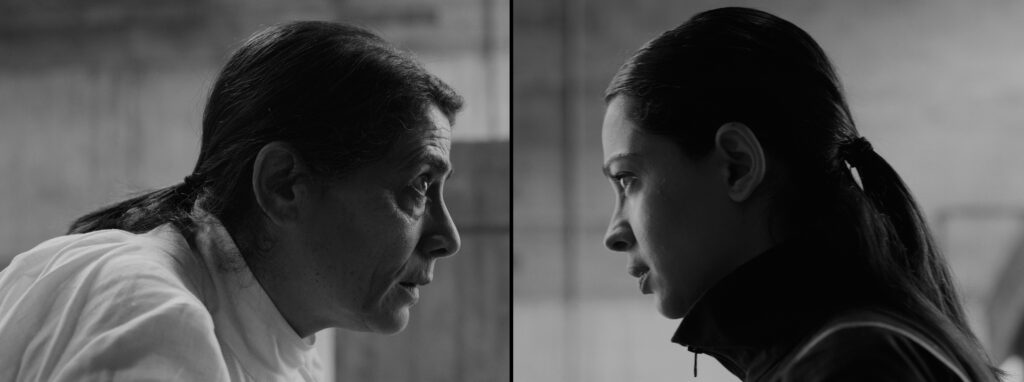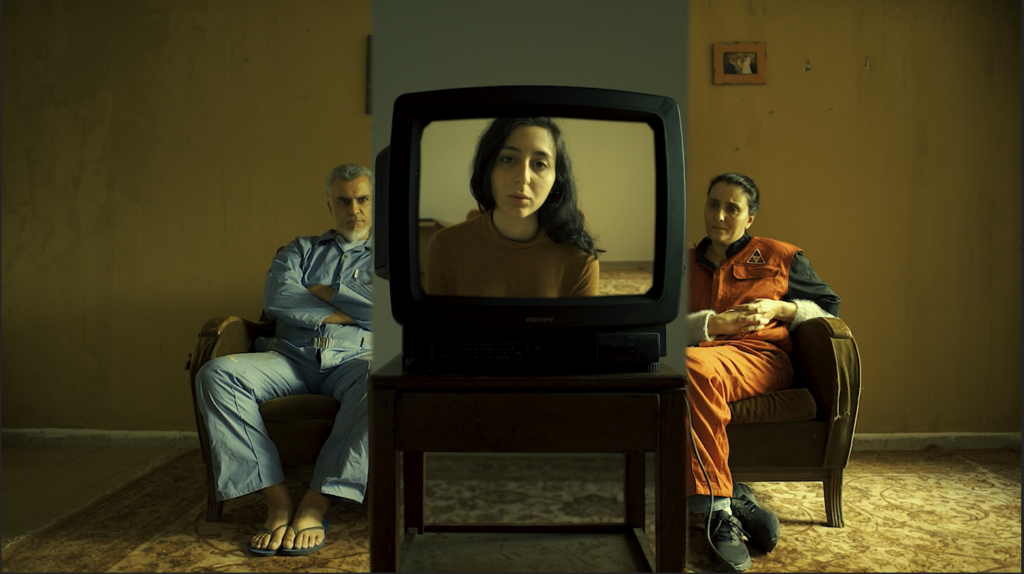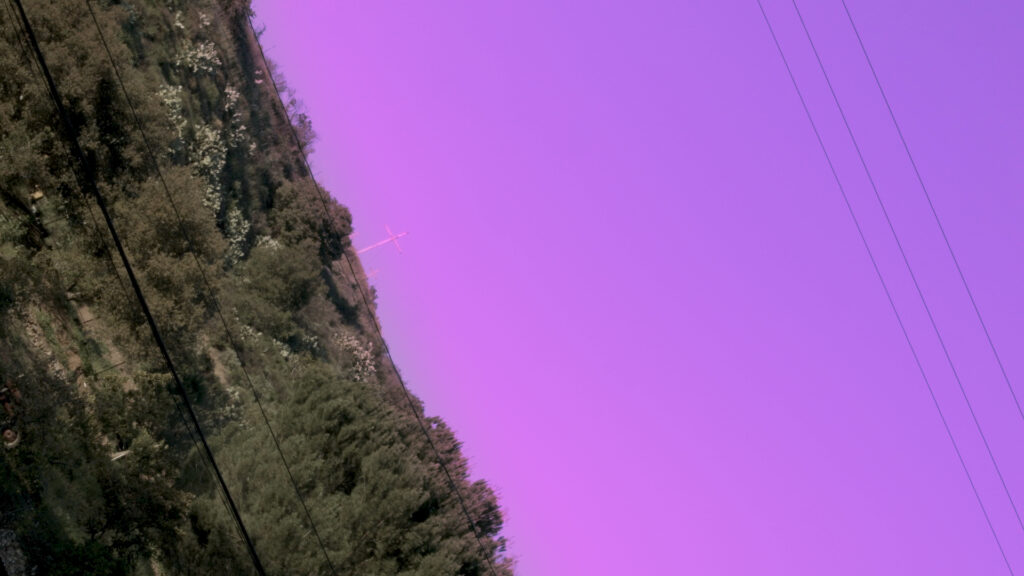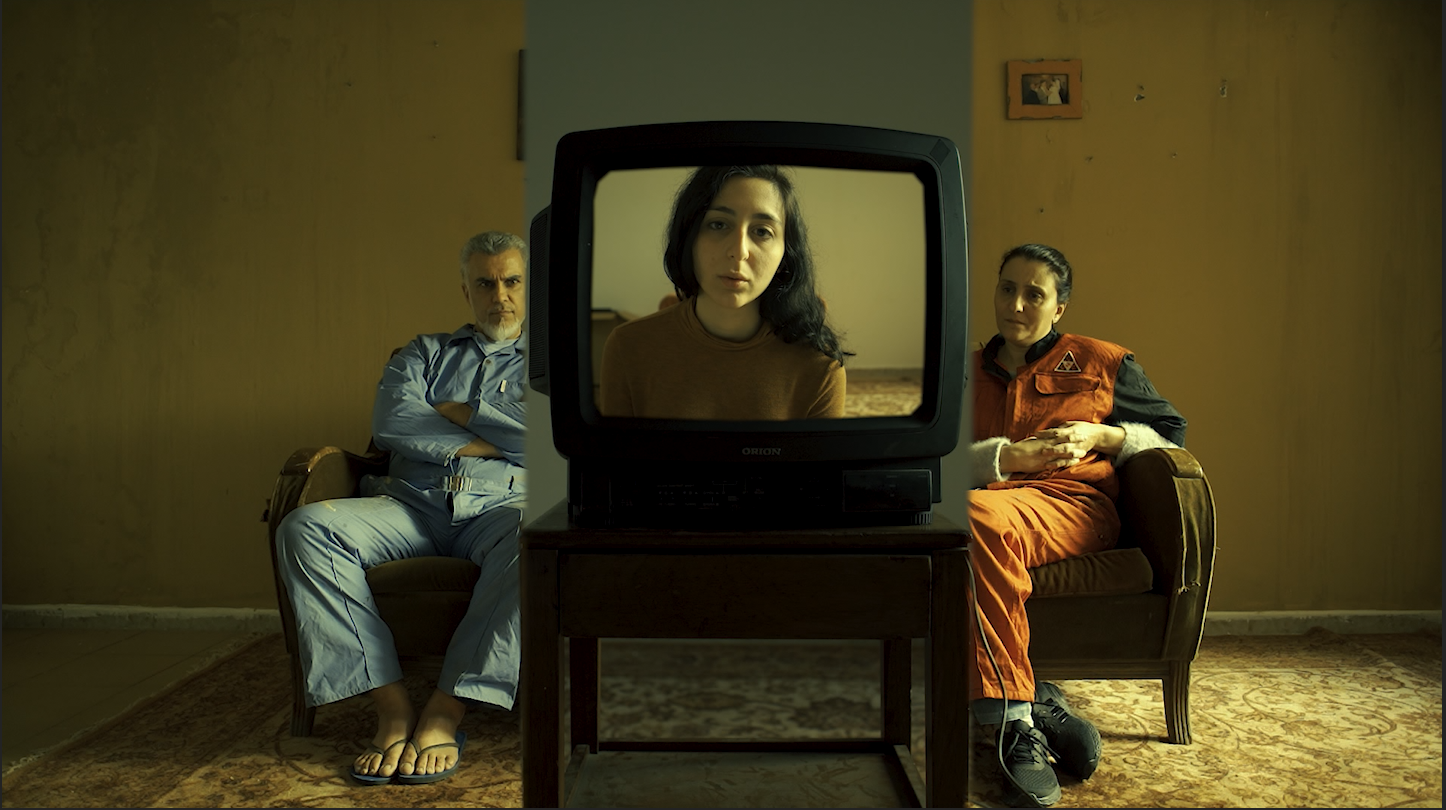by Sarah Sarofim
From April 8 to April 30, 2022 eight films screened online as part of the SWANA Film Festival. The virtual component of the festival streamed on VUCAVU, and was presented by the Regina Public Library Film Theatre. Two programs, “Inconvenient Truths” and “Experimental Archives,” “tackle the entangled depths of longing” as director/curator Christina Hajjar notes.
“Inconvenient Truths” brought together voices from the United States of America, Sudan, and Palestine. The program featured Darine Hotait’s Tallahassee (2021), Hashim Hassan’s A Handful of Dates (2020), and In Vitro (2019) by Larissa Sansour and Søren Lind. The three films take on different topics: navigating/masking mental illness and facing one’s family after a release from a psychiatric family, family inheritance and land management in villages, and lastly, the responsibility, burden, and importance of remembrance. The films centre intergenerational conversations, at times explicitly showing the meeting/confrontation of two worldviews. In other conversations, people quietly and attentively absorb knowledge from each other.

In In Vitro’s 16:9 ratio, a black line divides the screen into two spaces, with the discussion between the 70-year-old Dunia and 30-year-old Alia occurring independently, as a flattened vis-à-vis. Set in the aftermath of an eco-disaster with a group of scientists aiming to replant the soils of what was once Bethleem, Dunia, the founder of the initiative, and Alia, a child of their cloning program, discuss the complexities and affects of duty and reparation. Separate black and white shots of the two, facing each other through this imposed line, are coupled with an incredibly poignant dialogue: “I know it is conflicting to be engineered from the remains of those we left behind” and “I despise the idea of the present as nothing but a void. A transition between what was and what’s to come.” Sansour and Lind utilize the film’s form to accentuate generational gaps.
Despite it being fictive and futurist, it speaks volumes to intergenerational trauma and navigating grief when you weren’t born in a homeland. In a region where oral history is important and passed on, “Inconvenient Truths” exposes its intricacies, and how ultimately each generation, with its lived experience and baggage, tries to meet the other, inform them or criticize them—or ends up doing it all at once.
“Experimental Archives” showcases five films that engage with—and disturb—archives. Made between 2017 and 2020 and engaging with various geographical locations, including Lebanon, Egypt, Palestine, United States, and Canada, the films probe the medium of film as they navigate familial narratives. Some engage with existing archives and others utilize the production of a film to document a marking incident—archiving the present, archiving a process.

In The Perfect Picture, Hala El Kouch openly talks about the desire to make a film to discuss a familial incident that happened, to work through it and hopefully move past it. She couples old photographs of her and her parents with intimate and loaded conversations about working through trauma and trying to keep a family together. El Kouch draws parallels between making a film and resolving familial tensions. She informs her parents about technicalities related to the making of the film, such as the scenes being shot and their importance for the sequence of the film versus their relationship’s growth. As the instigator, filmmaker, and facilitator, she is also an active participant, showcasing her and her parents’ reactions to the emotional process. In trying to find the perfect picture through honest communication and film directing, we’re reminded of the complexities of making personal movies and the different purposes they hold.
Your Father Was Born 100 years Old, and So Was the Nakba by Razan AlSalah exposes the violence and erasure that exist in digital space and tools around us. A Palestinian grandmother navigates Google Streetview to look for her son, Ameen. The viewer is taken through choppy and prolonged shots of streets whose names have changed. The narrator questions who gets to occupy the streets of Palestine and picks up on details that stand as a testimony to history, such as the intersection of British Colonel William Stanton and Burj Street, “the crossroad of history, between colonialism and Palestine.” The manifestations of the Israeli occupation and colonial violence in Haifa embedded in Google Maps are made visible in this film, as the narrator screams and stresses the letter “ح”—it too erased.
Three artists base their films on found footage and archives. Sarah Trad’s Clench My Fists is a deconstruction and grouping of bits of Lebanese films and other found footage, as well as audio recordings of funeral laments. Rolla Tahrir’s Sira draws from material from the Jacques Mavo Collection as well as home videos to create a three chapter film about her family’s migration from Kuwait following the Iraqi invasion. Her mother recounts their trajectories in the past few decades, as the found footage is overlaid and disrupted. In relying on what already exists and what might be forgotten, the films resurface distant narratives and directly engage with voices from the past.

“Experimental Archives” ends with Bitter with a Shy Taste of Sweetness. Directed by Saif Alsaegh, the film features disorienting and highly saturated angled scenes of landscapes in Los Angeles. The whimsically dizzying landscapes are often interrupted by a black screen with text, narrating memories in Baghdad and early impressions of the West. “How strange is it to survive!,” he wonders.
The themes that come up in all of the films—displacement; intergenerational; relearning; geopolitics—are all words with prefixes. The mere few letters that sit before the preexisting word hold so much power. They not only add to its concept, but negotiate and de/stabilize its meaning—reinforcing the sense of disorientation that is visible in several of the filmmakers’ methods and styles. Inviting us to bear witness to intimate conversations and ongoing archives, the 2022 SWANA Film Festival stretches the liminal space between a prefix and a word, presenting counter-narratives of both personal and communal resilience.
Sarah Sarofim is a visual artist and writer based between Cairo and Toronto. She holds a BA in Art History and Visual Studies from the University of Toronto and was the 2020 fall Editorial Resident at Canadian Art magazine.
